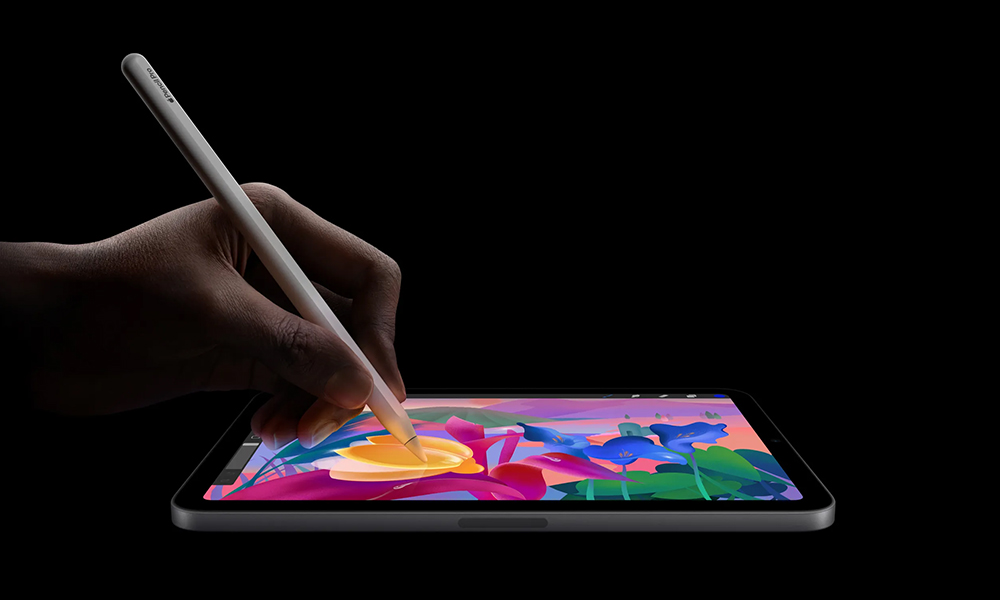Science & Technology
TikTok to label AI-generated content from OpenAI and elsewhere

TikTok plans to start labelling images and video uploaded to its video-sharing service that have been generated using artificial intelligence, it said on Thursday, using a digital watermark known as Content Credentials, Reuters reported.
Researchers have expressed concern that AI-generated content could be used to interfere with U.S. elections this fall, and TikTok was already among a group of 20 tech companies that earlier this year signed an accord pledging to fight it.
The company already labels AI-generated content made with tools inside the app, but the latest move would apply a label to videos and images generated outside of the service.
"We also have policies that prohibit realistic AI that is not labeled, so if realistic AI (generated contents) appears on the platform, then we will remove it as violating our community guidelines," Adam Presser, head of operations and trust and safety at TikTok, said in an interview.
The Content Credentials technology was spearheaded by the Coalition for Content Provenance and Authenticity, a group co-founded by Adobe (ADBE.O), opens new tab, Microsoft (MSFT.O), opens new tab and others, but is open for other companies to use, read the report.
It has already been adopted by the likes of ChatGPT creator OpenAI.
YouTube, owned by Alphabet's (GOOGL.O), opens new tab Google, and Meta Platforms (META.O), opens new tab, which owns Instagram and Facebook, have also said they plan to use Content Credentials.
For the system to work, both the maker of the generative AI tool used to make content and the platform used to distribute the contents must both agree to use the industry standard.
When a person uses OpenAI's Dall-E tool to generate an image, for example, OpenAI attaches a watermark to the resulting image and adds data to the file that can later indicate whether it has been tampered with, Reuters reported.
If that marked image is then uploaded to TikTok, it will be automatically labeled as AI-generated.
TikTok, which is owned by China's ByteDance, has 170 million users in the U.S., which recently passed a law requiring ByteDance to divest TikTok or face a ban. TikTok and ByteDance have sued to block the law, arguing it violates the First Amendment.
Science & Technology
South Korea authorities launch probe after three die in Hyundai car test
The Ulsan plant is Hyundai’s biggest manufacturing facility, with its own port and an annual production capacity of 1.4 million vehicles

South Korean authorities launched an investigation on Tuesday after three people died during a car test at a Hyundai Motor plant in the city of Ulsan, police told Reuters.
The two Hyundai researchers and one Hyundai contractor were found unconscious in a car at around 3:00 p.m. while they were testing it in a "chamber," according to Hyundai's labour union.
South Korean media reports said the three had suffocated.
A police officer in Ulsan said the police and the labour ministry were investigating the incident, including its cause.
A fire department official told Reuters that it first received a report at 3:17 pm that the accident happened at Hyundai's No.4 factory.
"Hyundai Motor Company is deeply saddened by the incident that occurred at our plant in Ulsan, South Korea," Hyundai said in a statement, saying it would "cooperate fully with all relevant authorities to determine the cause of this incident."
The Ulsan plant is Hyundai's biggest manufacturing facility, with its own port and an annual production capacity of 1.4 million vehicles, including exports of 1.1 million units.
In November last year, Hyundai Motor broke ground on a 2 trillion won ($1.44 billion) plant in Ulsan dedicated to making electric vehicles in South Korea, as the automaker accelerated a shift away from petrol-powered cars.
[embed]https://youtu.be/KrLKCrpLALU[/embed]
Science & Technology
Russia fines Google more than the world’s total GDP over YouTube bans

Russia has fined Google $2.5 decillion after the US tech giant took action against pro-Kremlin TV channels on YouTube following Moscow’s invasion of Ukraine.
Russia imposed a daily fine four years ago - a fine that has since swelled to an unprecedented level - ($20,000,000,000,000,000,000,000,000,000,000,000 - a 33-digit figure).
To put this into perspective, global GDP reaches an estimated $110 thousand billion (12-digit figure), according to the IMF.
Speaking to Russia’s TASS news agency, one expert, Roman Yankovsky from the HSE Institute of Education, said Google “clearly will not pay this penalty, and the Russian Federation will not be able to recover this money from the company."
Euronews reported that a short calculation shows that he is right.
Google's holding company, Alphabet, has a market capitalisation of slightly more than $2 trillion. Even with earnings of $80.54 billion from the last quarter, the tech giant doesn’t seem to be able to afford to pay the fine.
Google first barred pro-Moscow channel Tsargrad TV, which is owned by oligarch Konstantin Malofeev, four years ago.
At the time, Google was fined a daily penalty of 100,000 roubles and warned that amount would double every 24 hours if it went unpaid.
The original fine has been compounded by further penalties after Google eventually blocked a total of 17 Russian TV channels as a result of international sanctions, The Telegraph reported.
The tech giant now owes a staggering $2.5 decillion.
Science & Technology
Apple launches new iPad mini with AI features
Apple said it would roll out the first set of AI features in the U.S. version of the English language this month through a software update with iPadOS 18.1.

Apple on Tuesday launched its new generation of the iPad mini packed with AI features including writing tools and an improved Siri assistant, as the iPhone maker races to boost its devices with artificial-intelligence capabilities, Reuters reported.
The new iPad mini is powered by Apple's A17 Pro chip, which is used in the iPhone 15 Pro and Pro Max models. With a six-core central processing unit, the A17 Pro would boost CPU performance by 30% compared to the current generation iPad minis and is central to running Apple Intelligence, Apple's AI software.
Apple said it would roll out the first set of AI features in the U.S. version of the English language this month through a software update with iPadOS 18.1.
The features will be available for iPads with A17 Pro or M1 chips and later generations, Apple said, adding it will roll out additional features including image-generation tools, Genmoji and ChatGPT-powered capabilities over the next several months, read the report.
Apple in September unveiled its long-awaited, AI-boosted iPhone 16 lineup, but with the AI features still in test mode, the company failed to excite some investors while early sales data raised some questions around demand.
Still, research firm Canalys on Monday said the iPhone 16 would help Apple's sales in the fourth quarter and drive momentum into the first half of 2025, after Apple reached a record high third-quarter shipments.
The iPad mini, starting at $499, is available for pre-orders starting on Tuesday and will begin arriving to customers and Apple store locations next week, Apple said.
-

 Latest News5 days ago
Latest News5 days agoOttawa taking detention of Canadian in Afghanistan ‘very seriously’
-

 Sport4 days ago
Sport4 days agoFIFA unveils Innovative Club World Cup Trophy ahead of new tournament in 2025
-

 Regional4 days ago
Regional4 days agoIndia’s successful test of hypersonic missile puts it among elite group
-

 Latest News4 days ago
Latest News4 days agoTrump team compiling list of military officers responsible for US withdrawal from Afghanistan
-

 Latest News4 days ago
Latest News4 days agoCanada sent 19 failed asylum seekers back to Afghanistan last year
-

 Sport3 days ago
Sport3 days agoAbu Dhabi’s thrilling T10 tournament just days away
-

 World4 days ago
World4 days agoBiden allows Ukraine to use US arms to strike inside Russia
-

 Sport3 days ago
Sport3 days agoAfghanistan beat UAE by 169 runs in U19 tri-series
























